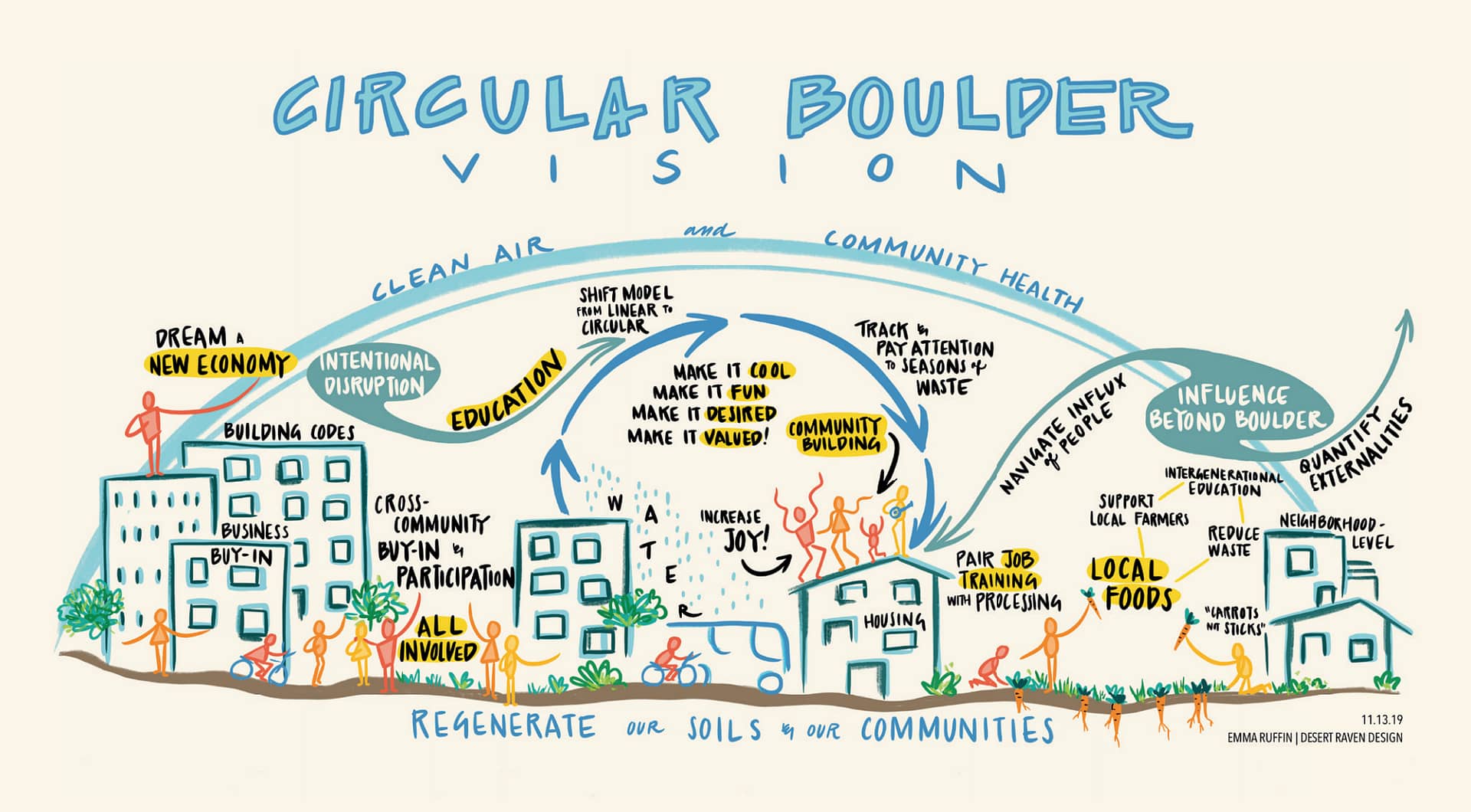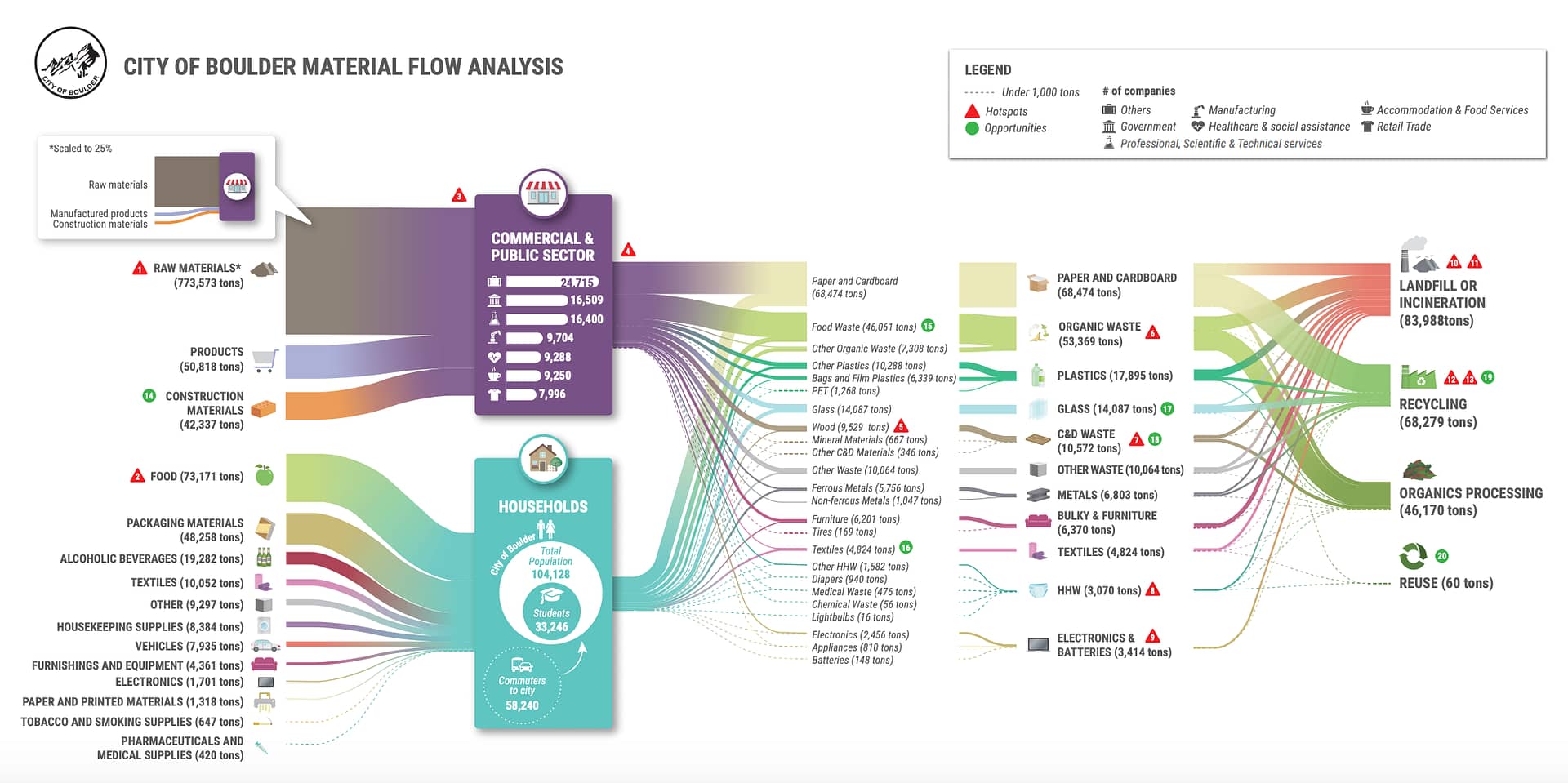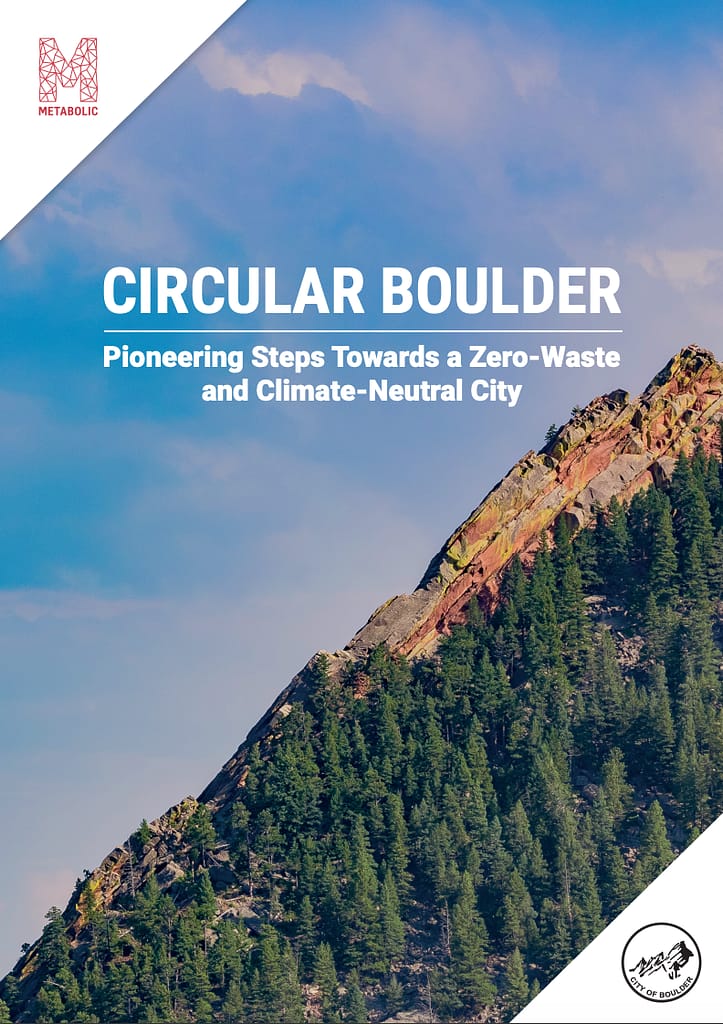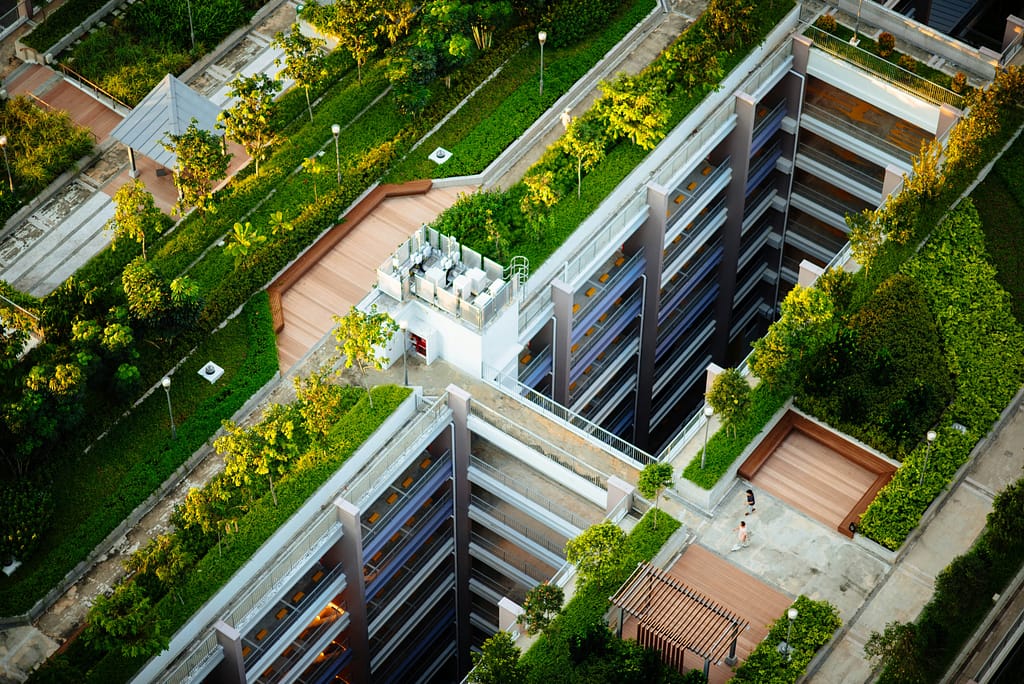Circular Boulder: Pioneering towards a zero waste and climate neutral city
Collaborating with the city, we mapped material consumption, waste, and emissions to transition Boulder towards a circular economy.
- Client: City of Boulder
- Date: February 2020
Reducing emissions through a circular economy
The US city of Boulder is a community deeply rooted in its surrounding environment and committed to sustainability. They have high ambitions to achieve an 80% reduction in greenhouse gas emissions by 2050 (compared to 2005). As the City works towards this reduction while simultaneously striving to provide jobs and strengthen the local economy, a key priority is “zero-waste” – which is why Boulder has committed to becoming a “zero-waste” community by 2025, minimizing waste to landfill, landfill greenhouse gases, and emissions from transportation.
But cities are compact consumption centers and most of the environmental impacts caused by urban activity take place outside the borders of the city itself. Especially for a city such as Boulder, which has a strong service economy, the majority of the city’s greenhouse gas emissions are “embodied” in products and materials imported from outside the city’s boundaries. Taking a critical look at the consumption of materials and products, in addition to what happens to these when they become waste, represents a major step. This requires a more holistic approach known as the “circular economy”.
Material flow analysis and stakeholder workshops as the basis for action
To determine a viable course of action to help Boulder achieve its objectives, we began by producing a material flow analysis of all of the city’s material throughput and pinpointed the largest impacts within the current system. Part of this analysis was an evaluation of the “embodied” or “consumption-based” emissions associated with material consumption in the city, which proved far greater than local sources of emissions.
Combined with this data-driven foundation, we held a series of workshops, where we worked with the local community, municipality staff, and other key stakeholders to make steps towards a comprehensive vision and roadmap for Boulder’s circular future. With this input we created a long-term roadmap that determines key milestones and provides enabling actions to suit their goals.
A vision and roadmap for Circular Boulder
Together with the local community and City stakeholders, we developed a vision for Circular Boulder and gathered data to produce a 29-step actionable roadmap. The prevailing themes in the outcomes include developing critical knowledge; building a strong circular network; engaging the public; working closely with the other city departments; changing policy, lobbying for change and finding workarounds; and establishing a strong economic basis for circular entrepreneurship and innovation.
A systems approach to waste and materials consumption, bringing stakeholders together for cross-cutting collaboration, and leveraging the capacity and motivation of the local community to create change will support Boulder’s current and more ambitious waste and climate goals.










“This report is one of the first steps in broadening the city’s focus from how we manage waste to how we manage materials. Boulder is a leader in waste reduction, however, in order to really address the climate crisis, the city needs to lead the way in implementing deep, systemic change through coordinated action to foster a circular economy.”
Kara Mertz, Sustainability Manager, Boulder
Director of Product – Metabolic Software
ANY QUESTIONS?
For more information about this project, please get in touch.






